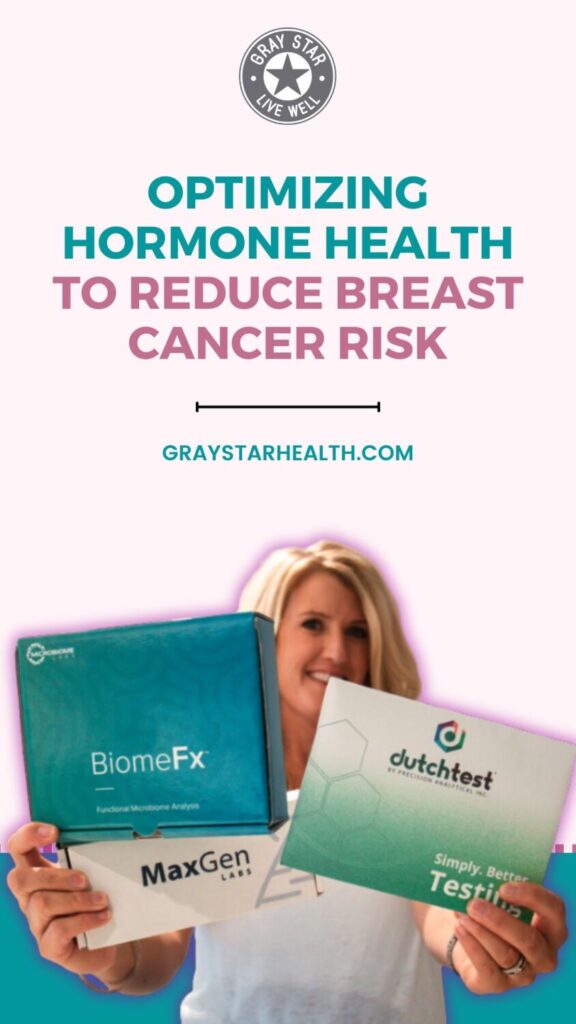These hormones play key roles in numerous body functions, from bone health to cardiovascular regulation, brain function, and even mood stability. However, when these hormones become imbalanced, women can experience various symptoms that extend far beyond irregular periods or fertility issues—such as weight gain, fatigue, anxiety, and even an increased risk for diseases like breast cancer.
Lifestyle habits such as diet, exercise, and stress management have a profound effect on hormone regulation. High stress, for example, raises cortisol levels, which can disrupt the delicate balance between estrogen and progesterone. Chronic stress is often associated with irregular periods, worsened PMS symptoms, and can even worsen perimenopausal and menopausal symptoms. Similarly, a diet high in processed foods and sugar can negatively affect blood sugar balance, leading to insulin resistance, which in turn impacts hormone regulation. A poor diet and sedentary lifestyle contribute to a vicious cycle of hormonal disruption that can increase inflammation, weight gain, and ultimately disease risk.
One of the most crucial factors in maintaining hormonal health and reducing breast cancer risk is proper estrogen detoxification. Estrogen must be metabolized and eliminated efficiently through the liver and gut to prevent the build-up of harmful estrogen metabolites, which can contribute to breast cancer. This is why I always emphasize the importance of supporting the liver through a healthy diet rich in fiber, cruciferous vegetables (like broccoli and cauliflower), and antioxidants, while avoiding environmental toxins like BPA, which can mimic estrogen in the body and disrupt hormonal balance.

Ensuring the body is efficiently breaking down and eliminating excess estrogen is crucial. Poor gut health, which can result from a lack of fiber, processed foods, a disrupted microbiome, and constipation, can impede estrogen detox. Estrogen must be broken down in Phase 1 and Phase 2 liver detoxification, but then must be eliminated from the body in Phase 3 which occurs in the large intestine and requires both a healthy microbiome and daily bowel movements. Women who support their gut health are better able to detox excess estrogen and maintain a healthy balance of hormones, reducing their risk of estrogen-related cancers.
One significant lifestyle habit that directly increases breast cancer risk is alcohol consumption. According to studies, alcohol disrupts estrogen metabolism by increasing circulating estrogen levels and impairing liver function, reducing the liver’s ability to process and eliminate estrogen. Women who consume alcohol regularly have a significantly higher risk of developing breast cancer compared to non-drinkers.
Ultimately, optimizing hormone health through targeted lifestyle changes—balanced nutrition, regular exercise, stress management, and eliminating / limiting alcohol—is essential not just for symptom management but also for breast cancer prevention. Supporting estrogen detox through liver and gut health, along with limiting exposure to hormone disruptors, is a powerful step toward reducing the overall risk of breast cancer.

Along with regular screenings and annual blood work with your provider, I recommend a DUTCH test to assess your estrogen metabolism and metabolites, along with a BiomeFX stool test to assess the health of your microbiome and estrobolome, and a genetic test from MaxGen Labs.
The DUTCH test (Dried Urine Test for Comprehensive Hormones) is an advanced hormone testing method that not only measures the total hormone levels but also evaluates how well the body metabolizes them. This provides insights into whether hormones like estrogen are being processed and detoxified properly, which is crucial for minimizing the risk of hormone-driven conditions like breast cancer.
The BiomeFX Functional Microbiome Analysis uses advanced DNA sequencing technology to identify and quantify the presence of beneficial and harmful microbes in the gut. By evaluating the overall balance of the gut ecosystem, BiomeFx offers insights into gut health, inflammation, digestion, and how the microbiome affects other aspects of health, such as hormone metabolism.
The MaxGen Genetics Test provides you with a blueprint of your body’s unique genetic makeup, empowering you with insights to optimize your health and lifestyle. It analyzes genetic variants involved in hormone metabolism, detoxification DNA repair, inflammation, and nutrient utilization.
Using functional lab testing like the DUTCH, BiomeFX and MaxGen Labs offers a powerful tool for women who want to take a proactive, personalized approach to reducing cancer risk while supporting overall health and well-being.









